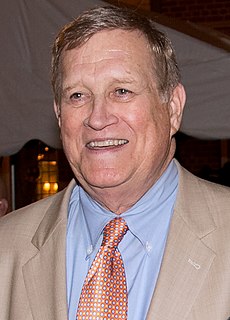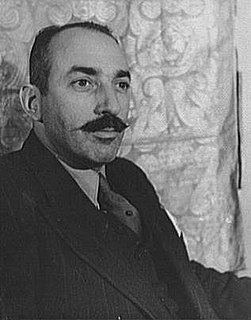A Quote by Wendy Kaminer
It's easy to sell good news like this, and the authors confidently rely on classic fallacious arguments. They argue by declaration, which is what makes the books so amusing. In matter-of-fact, authoritative tones, the authors tell us how plants and human beings exchange energy - or they describe what angels look like, whether or how they're sexed, how they communicate with human beings, and how they differ from ghosts. Readers might be expected to wonder, How do they know?
Quote Topics
Related Quotes
There is no limit to suffering human beings have been willing to inflict on others, no matter how innocent, no matter how young, and no matter how old. This fact must lead all reasonable human beings, that is, all human beings who take evidence seriously, to draw only one possible conclusion: Human nature is not basically good.
I think that every educator, indeed every human being, is concerned with what is true and what is not; what experiences to cherish and which ones to avoid; and how best to relate to other human beings. We differ in how conscious we are of these questions; how reflective we are about our own stances; whether we are aware of how these human virtues are threatened by critiques (philosophical, cultural) and by technologies (chiefly the digital media). A good educator should help us all to navigate our way in this tangled web of virtues.
How Human beings are, that is how the society will be. So, creating human beings who are flexible and willing to look at everything rather than being stuck in their ideas and opinions definitely makes for a different kind of society. And the very energy that such human being carry will influence everything around them.
Others have questions about how it is that God and human beings can both be speaking through the one document such that you can see and read the personalities of the human authors with their individual vocabularies and literary genres, and yet this is nevertheless the word of God. How can that be? This is quite a contrast with Islam, for example, which holds that the Koran has been dictated in Arabic by God and as a result Mohammed is nothing more than the one who memorizes the word so as to pass it on. There is nothing of human contribution.
What does it matter how cultivated and up-to-date we are, or how many thousands of books we’ve read? What matters is how we feel, how we see, what we do after reading; whether the street and the clouds and the existence of others mean anything to us; whether reading makes us, physically, more alive.
I went to a heavy metal concert. The singer yelled out, "How many of you people feel like human beings tonight?" And then he said, "How many of you feel like animals?" The thing is, everyone cheered after the animals part, but I cheered after the human beings part because I did not know there was a second part to the question.
Everything we know has its origin in questions. Questions, we might say, are the principal intellectual instruments available to human beings. Then how is it possible that no more than one in one hundred students has ever been exposed to an extended and systematic study of the art and science of question-asking? How come Alan Bloom did not mention this, or E. D. Hirsh, Jr., or so many others who have written books on how to improve our schools? Did they simply fail to notice that the principal intellectual instrument available to human beings is not examined in school?




































